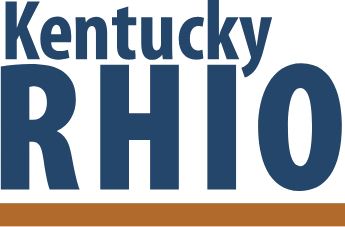Implementing the Patient-Centered Medical Home model in your practice has many benefits from the clinician perspective. However, the reason for this model is to put patients in the center of their care and to improve the health of patient populations.
The clinicians “get it,” but do the patients? Most patients know that they don’t feel well and the clinicians have the means to make them better (they fix it!). With the PCMH model implemented into a practice the patient is now the center of the whole practice. Below is a testimony from a patient that not only works in the healthcare industry, but also has a PCMH designated doctor.
Up until recently, my experience with the health care system is probably pretty similar to anyone else who’s had to bounce between hospitals and specialists: Frustrating.
I got passed from place to place like a hot potato. My doctors must have been big advocates of the trial and error method because that’s all we ever did. Try and err. New tests and new prescriptions were followed by more confusion, more drug resistance and more costs. Like most patients, I didn’t feel accountable for my health because I didn’t understand it. That was my doctor’s’ job – and I trusted them blindly.
A few years ago I moved to Michigan for a job at Blue Cross Blue Shield of Michigan. While working for Blue Cross, I kept hearing about our PCMH program. I wasn’t sure the recognition mattered that much, but I was in the market for a new doctor so I figured I’d give it a try. I hopped on Blue Cross’ Find a Doctor tool and found myself a local PCMH-designated physician.
Fast forward a few months, and I am blown at how different my experience has been. Here are some of the biggest reasons I hove having a PCMH doctor:
My doctor is my personal advisor. She asks questions; digging past surface-level explanations I’ve been accepting all my life. She takes the time to explain things to me. Each time I visit her office, she follows up with a note that reviews what we discussed and provides next steps. Instead of focusing on symptoms, she treats me as a whole person. A patient-provider relationship is central to the PCMH model. Your primary doctor is not just a disconnected medical textbook in human form. They are a personal consultant and health coach.
I completely understand each health care experience. Medical jargon is a foreign language that I don’t think I will ever master. But somehow my doctor helps me understand every single health experience. I finally know my “numbers,” and understand what they mean. Every time I have been sent to a test, I know exactly why I am taking it and I am able to have an educated discussion with the person administering the test about what they are seeing. When results come in, I receive a copy in the mail with a note from my doctor explaining exactly what the results mean.
There’s an entire team that has by back. I am no longer on my own trying to navigate a fragmented healthcare system. If my doctor refers me to a hospital or specialist, my team makes the appointment on my behalf. After my appointment, my team will check in to see if I need anything. If I need a prescription, my team coordinates with my pharmacist so all I have to do is pick it up. If I need medical advice outside of office hours, I have 24-hour access to a clinical decision-maker. Instead of feeling like a nameless patient on a conveyer belt, I feel like the center of my own medical universe.
All in all, having a PCMH doctor made health care easy and stress-free. Instead of being alone and confused, I feel educated, empowered and informed. Resource
Knowing that the patient feels more comfortable and knowledgeable about their own health is contagious throughout the community as well. The PCMH model is being implemented throughout practices in the nation. Providers and administrators have heard their patients’ needs and know that this is the future of primary care.
Stay tuned for updates and other exciting benefits for your clinic and your patients.
For more information, questions, or to request a topic that you would like to know more about please contact Julie Stephens, Project Director, at j.stephens@NeKYrhio.org.
